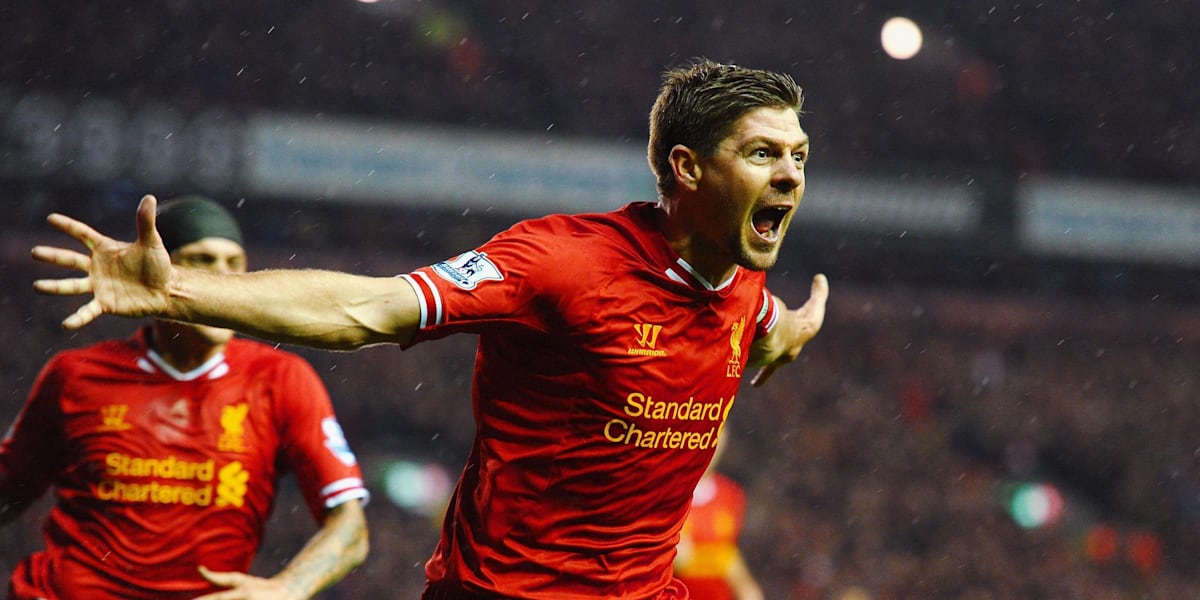Steven Gerrard (Part 1)
Steven Gerrard (Part 1)

Steven George Gerrard MBE, born on 30 May 1980, is an accomplished English professional football manager and former player, currently in charge of the Saudi Pro League club Al-Ettifaq. Recognized by pundits and peers alike as one of the greatest players of his generation, Gerrard's illustrious playing career predominantly unfolded as a central midfielder for Liverpool and the England national team, where he assumed the role of captain.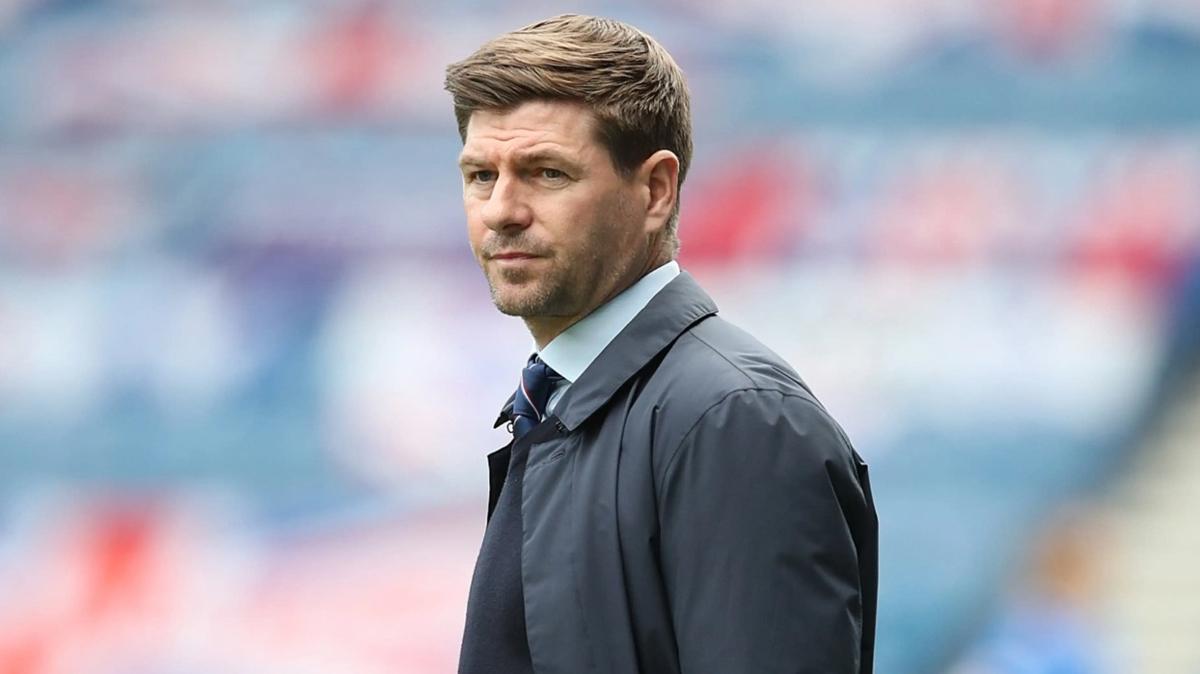
Hailing from Merseyside, Gerrard donned Liverpool's colors from 1998 to 2015, clinching nine trophies, including the prestigious UEFA Champions League, two FA Cups, and three League Cups. Notable among his feats was being named Man of the Match in the unforgettable 2005 UEFA Champions League final, where Liverpool, against all odds, overcame a 3–0 deficit to triumph over AC Milan on penalties. His stellar performance in the 2006 FA Cup final earned the match the moniker The Gerrard Final. Despite his success in various cup competitions, the Premier League title eluded him. 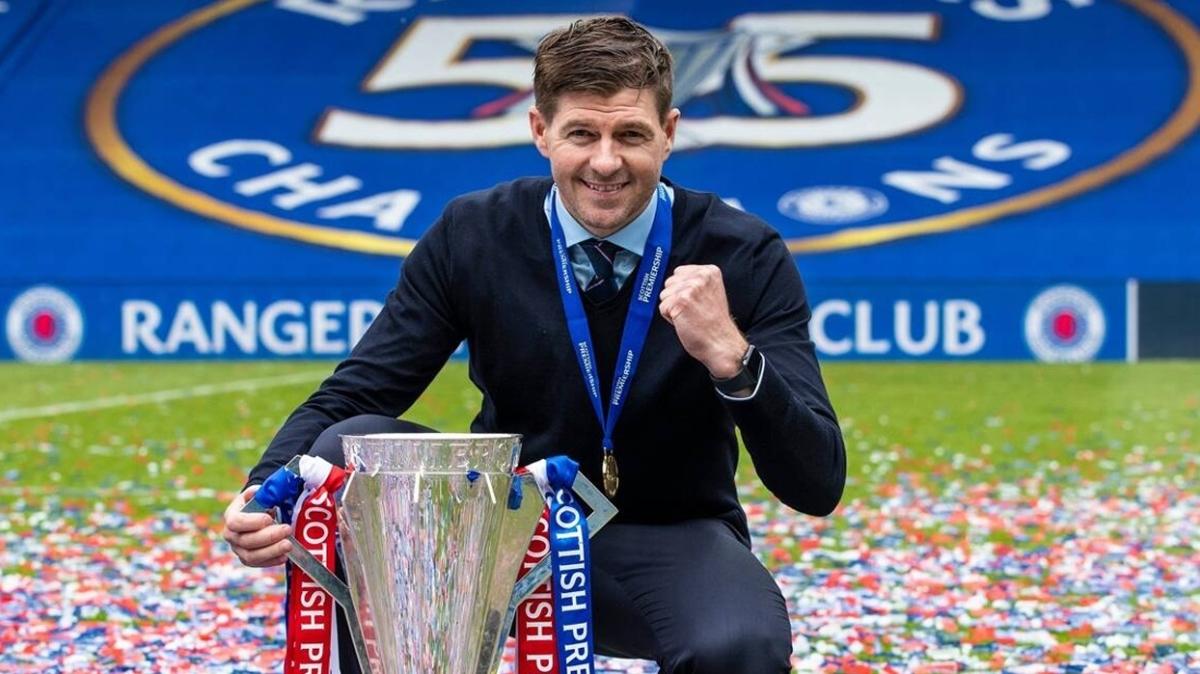
Gerrard earned 114 caps for England between 2000 and 2014, captaining the team 38 times and netting 21 goals. His international career encompassed three UEFA European Championships and three FIFA World Cups. After a two-year stint with Major League Soccer's LA Galaxy, he concluded his playing career in 2016.
Embarking on his managerial journey, Gerrard initially led Liverpool Youth Academy's under-18 team before assuming senior managerial duties with the Scottish Premiership club Rangers in 2018. In his third full season at the helm, Gerrard orchestrated an unbeaten league campaign, securing Rangers' first league title in a decade. Despite this success, in November 2021, he took charge of Aston Villa but, after just eleven months, faced dismissal due to a string of unsatisfactory results.
Gerrard's player accolades include UEFA Club Footballer of the Year , PFA Players' Player of the Year , FWA Footballer of the Year , appointment as a Member of the Order of the British Empire , and induction into the Premier League Hall of Fame. He earned a place in the PFA Premier League Team of the Year a record eight times. In his managerial capacity, he was honored as Manager of the Year for 2021 by PFA Scotland and the SFWA.
Steven George Gerrard, born on 30 May 1980, in Whiston, Merseyside, England, is the second son of Paul and Julie Ann Gerrard. He commenced his football journey with his hometown team, Whiston Juniors, catching the attention of Liverpool scouts. At the age of nine in 1989, he joined the Liverpool Academy./origin-imgresizer.eurosport.com/2013/12/25/1155491-18241545-2560-1440.jpg)
During his formative years, his footballing idols were John Barnes and Ian Rush at Liverpool, and Paul Gascoigne for England. Gerrard experienced an unusual childhood injury when a garden fork became embedded in the big toe of his right foot. In his autobiography, Gerrard: My Autobiography, he acknowledged Liverpool's academy director Steve Heighway and his father for preventing a potentially amputation-inducing operation on his toe.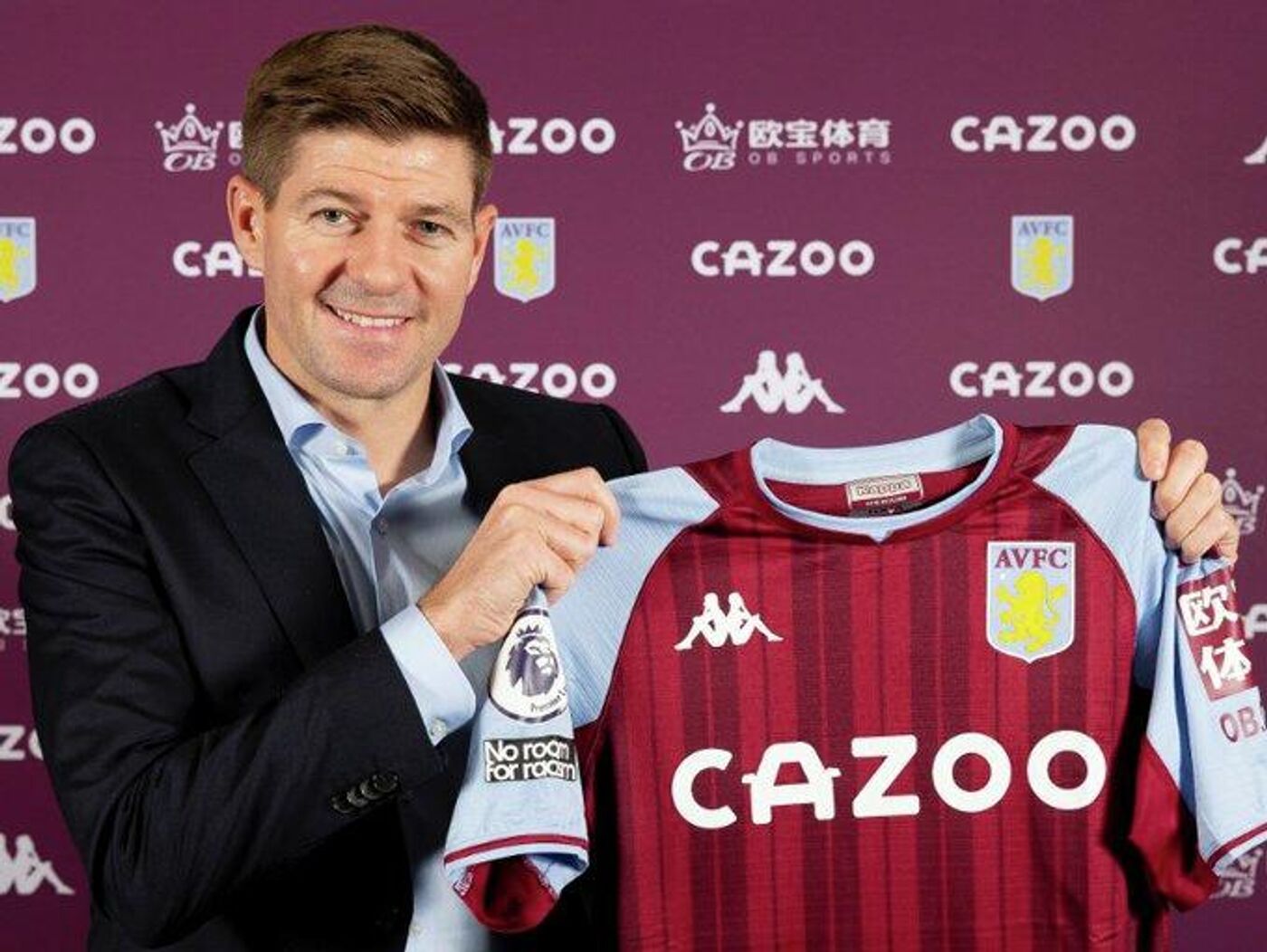
Despite not being Catholic and living outside the designated area, Gerrard attended Cardinal Heenan Catholic High School, recommended by his primary school teacher, whose husband served as a PE teacher at the school. This decision was influenced by the school's esteemed football reputation compared to others in the vicinity. At the age of fourteen, Gerrard underwent trials with various clubs, facing initial struggles. He never secured a spot in the England schoolboys' team. Notably, he had a trial with Manchester United, which, according to his 2006 autobiography, was an attempt to pressure Liverpool into giving me a Youth Training Scheme contract. Eventually, he signed his first professional contract with Liverpool on 5 November 1997.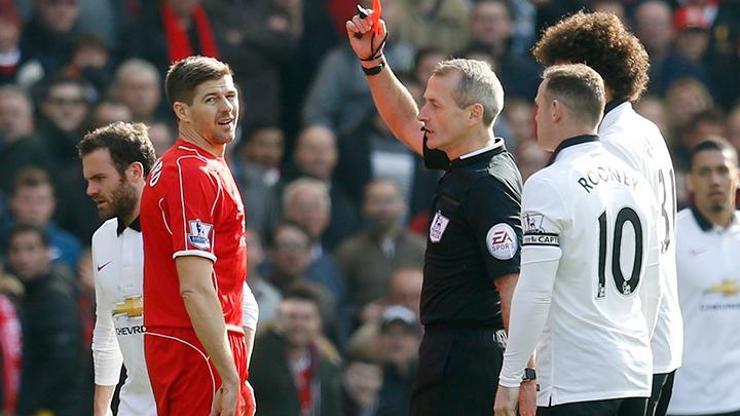
1998–2004: Beginnings, cup treble and club captaincy
- Gerrard's journey into Liverpool's first team began on 29 November 1998, as he made his debut as a late substitute in a Premier League clash against Blackburn Rovers. Throughout his inaugural season, he made thirteen appearances, stepping in for the injured captain Jamie Redknapp in central midfield. Although occasionally deployed on the right wing, Gerrard's contributions were limited due to nerves and the brevity of his playing time, leading him to confess in a 2008 interview with The Guardian, I was out of position and out of my depth. Despite his self-assessment, Liverpool's coaching staff remained optimistic about his improvement, with Gerrard initially viewing himself as a defensive player focused on crucial tackles rather than pushing the team forward.
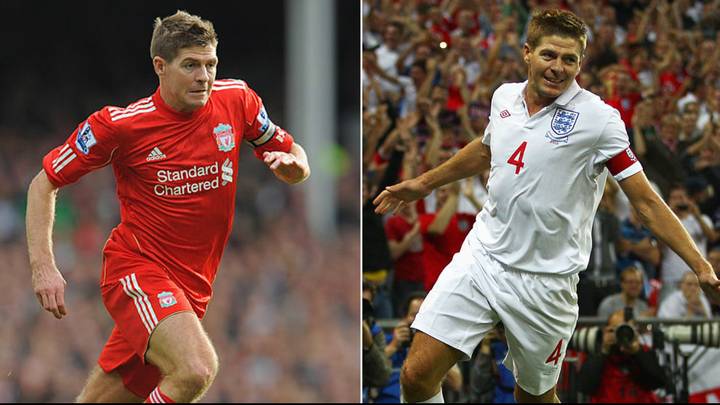
For the 1999–2000 season, Gerrard became a regular midfield partner to Redknapp, succeeding Paul Ince in the role. In an eventful Merseyside derby, he received his first career red card for a challenge on Everton's Kevin Campbell after coming on as a substitute for Robbie Fowler. Gerrard scored his debut senior goal later that season in a 4–1 triumph over Sheffield Wednesday. Unfortunately, persistent back issues, attributed to accelerated growth during his teenage years, and subsequent groin injuries requiring four operations, hindered his progress.
The 2000–01 season marked Gerrard's breakthrough, making fifty starts and scoring ten goals across all competitions. He secured his first major honors with Liverpool, clinching the FA Cup, Football League Cup, and the UEFA Cup, notably scoring in the final of the latter. His impressive performances earned him the PFA Young Player of the Year award. The subsequent season brought further success, with Gerrard winning the FA Charity Shield and UEFA Super Cup. 
In March 2003, he opened the scoring in Liverpool's 2–0 victory over Manchester United in the Football League Cup final at the Millennium Stadium in Cardiff. After serving as vice-captain for a year, Gerrard took over as Liverpool captain in October 2003, succeeding Sami Hyyp. Manager Gérard Houllier acknowledged Gerrard's leadership qualities, emphasizing the need for him to mature into the role.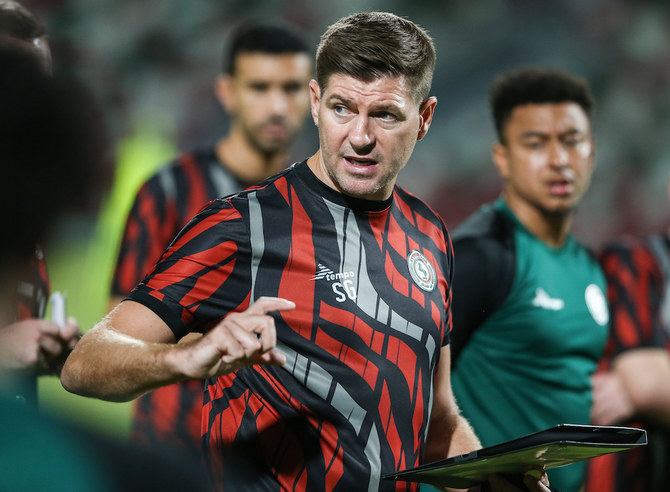
In June 2005, Gerrard committed to Liverpool by signing a four-year contract extension. This decision followed Houllier's resignation after a trophy-less 2003–04 campaign, during which Gerrard was linked with a move to Chelsea. Expressing dissatisfaction with Liverpool's progress, he contemplated the possibility of leaving for the first time in his career. However, despite a £20 million offer from Chelsea, Gerrard opted to stay with Liverpool under the management of Rafael Benítez.
In a remarkable six-minute stretch during the second half of the 2005 Champions League final against AC Milan, Liverpool orchestrated a stunning comeback from a three-goal deficit, leveling the score at 3–3 after extra time. Gerrard played a pivotal role in this turnaround, scoring one of the goals with a header from a John Arne Riise cross. Liverpool's third goal came from a penalty awarded after Gennaro Gattuso fouled Gerrard in Milan's penalty area. Although Dida saved Xabi Alonso's penalty, the rebound was converted. Gerrard, designated as the fifth penalty taker, did not participate in the subsequent shoot-out, which Liverpool won 3–2, securing their first Champions League trophy in two decades. This epic match, known as the Miracle of Istanbul, is widely acclaimed as one of the greatest finals in the competition's history, with Gerrard hailed as the catalyst for the second-half comeback. He was named the Man of the Match and later received the UEFA Club Footballer of the Year award.
Amid contract negotiations with Liverpool, Gerrard expressed his sentiments to the press after the final, stating, "How can I leave after a night like this?" However, talks hit a roadblock, and on 5 July 2005, after rejecting another lucrative offer from Chelsea, Gerrard's agent Struan Marshall informed Liverpool chief executive Rick Parry that Gerrard was turning down a club-record £100,000-a-week offer.
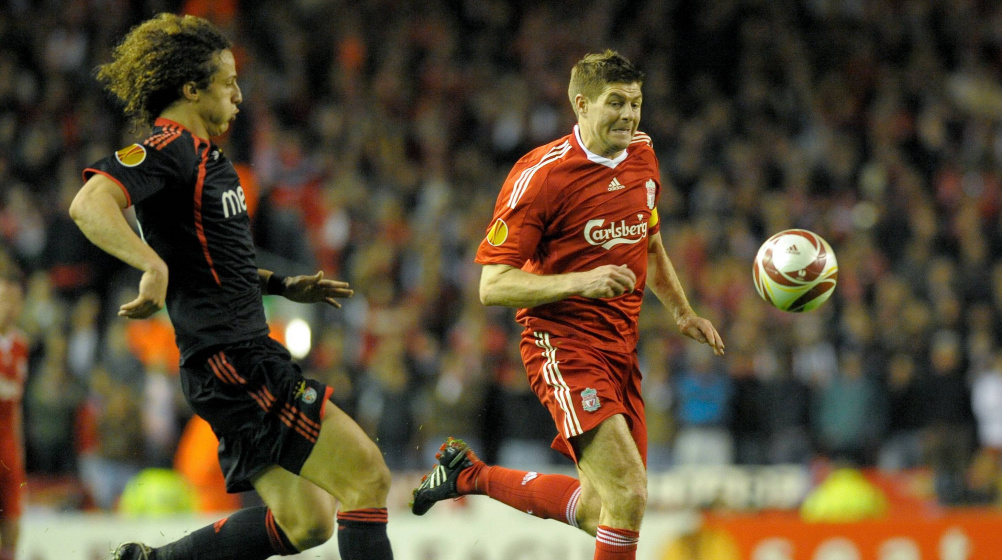
References
- "2014 FIFA World Cup Brazil: List of Players: England" (PDF). FIFA. 14 July 2014. p. 14. Archived from the original (PDF) on 3 February 2020.
- a b "Steven Gerrard: Overview". Premier League. Archived from the original on 25 May 2021. Retrieved 13 November 2021.
- a b "8. Steven Gerrard". Liverpool F.C. Archived from the original on 16 June 2015. Retrieved 13 March 2012.
- ^ Herbert, Ian (23 October 2011). "Steven Gerrard: 'It's lows not highs that make you a better player'". The Independent. Archived from the original on 4 January 2021. Retrieved 1 January 2021.
- a b "1st Team squad profiles: Steven Gerrard". Liverpool F.C. Archived from the original on 30 July 2008. Retrieved 19 December 2008.
- ^ Stanley, Anton (20 October 2018). "Rangers news: Steven Gerrard 'gutted' by Paul Gascoigne's Scottish Football Hall of Fame snub". Talksport. Archived from the original on 30 December 2020. Retrieved 1 April 2019.
- ^ Rich, Tim (13 October 2007). "England's rugby team inspires Steven Gerrard". The Daily Telegraph. London, UK. Archived from the original on 4 January 2021. Retrieved 4 January 2021.
- Gerrard 2006, p. 10
- ^ Gerrard 2006, p. 14
- ^ Gerrard 2006, pp. 31–32
- ^ Rich, Tim (13 October 2007). "England's rugby team inspires Steven Gerrard". The Daily Telegraph. London, UK. Archived from the original on 4 January 2021. Retrieved 4 January 2021.
- a b c d Gerrard 2006, pp. 10–14
- a b Kay, Oliver (28 November 2008). "Steven Gerrard completes decade at Liverpool". The Times. London. Retrieved 19 December 2008.
- a b Rich, Tim (29 November 2008). "A decade of Gerrard: from skinny lad to the hero of Anfield". The Guardian. London. Archived from the original on 4 February 2009. Retrieved 19 December 2008.

